The right to live in a clean environment is a natural human right, a very important right because it is directly related to the quality of life along with criteria used to assess the quality of life such as average income per capita and social security system.
The international community recognizes this as a top priority right, a goal of environmental protection activities, and all countries recognize this right in their legal documents.
Vietnam is not outside that trend, as a country that has signed the United Nations declarations on environment and human rights, turning the right to live in a clean environment into a legal principle and in fact it has become a principle in Vietnam's environmental law.
[caption id="attachment_596143" align="alignnone" width="798"] Vietnam is among the countries severely affected by climate change. (Photo: Community Disaster Prevention Fund)[/caption]
Vietnam is among the countries severely affected by climate change. (Photo: Community Disaster Prevention Fund)[/caption]Early awareness and action
Vietnam is among the countries that will be severely affected by climate change. It is forecasted that from now until the end of the 21st century, the average annual temperature in Vietnam is estimated to increase by 2-3 degrees Celsius, leading to rising sea levels, directly affecting 10-12% of the population and causing a loss of about 10% of GDP.
The increasingly negative impacts of climate change on human health are becoming increasingly evident. Climate change has been causing increasingly severe weather conditions, natural disasters such as floods and prolonged droughts, and extreme heat, which directly or indirectly affect human health through air pollution, water shortages, food and nutrition shortages, as well as increasing tropical diseases, infectious diseases, and mental illnesses. These negative impacts are most evident in vulnerable groups such as women, the elderly, children, and people with disabilities.
In the agricultural production sector alone, the most obvious impact of climate change is crop failure, making it difficult for these groups to reinvest and produce because they lack capital. As a result, the poverty of the poor will become more serious under the impact of climate change.
For poor households, temporary housing is at great risk of being affected by riverbank erosion, floods, storms, and heat waves, especially for migrant households; polluted water sources do not ensure living conditions, especially when there are natural disasters and extreme weather; weak infrastructure for this group also makes it difficult for them to travel and support them.
As a developing country, these impacts on Vietnam are enormous. Faced with these challenges, Vietnam has implemented many drastic measures to respond to the harmful effects of climate change.
Vietnam has had the Law on Environmental Protection since 1993, which was amended and supplemented in 2005, 2014, and most recently, on November 17, 2020, the National Assembly passed the Law on Environmental Protection 2020. The law stipulates: The environment is a condition, foundation, and prerequisite for sustainable socio-economic development. Environmental protection and climate change response must be harmoniously linked with economic development and placed at the center of development decisions; the environment must not be traded for economic growth; screening and selection of development investments must be based on environmental criteria.
The contents on ensuring human rights in policies and laws on climate change in Vietnam are built on the basis of internalizing international treaties related to climate change to which Vietnam is a member; linking the responsibility of implementing requirements on responding to climate change in production, business and service activities of organizations and individuals with competent state agencies in performing state management functions.
Vietnam's 2020 Law on Environmental Protection stipulates: "Environmental protection is harmoniously linked with social security, children's rights, gender equality, and ensuring everyone's right to live in a clean environment."
Ensuring human rights in Vietnam's climate change policies and laws is also reflected in regulations on environmental protection planning. Accordingly, environmental protection planning must be consistent with natural and socio-economic conditions; strategies and master plans for socio-economic development, national defense and security; national environmental protection strategies to ensure sustainable development; land use planning; ensuring environmental protection principles.
Along with that, ensuring human rights in policies and laws on climate change is also associated with the development of strategies, planning, and socio-economic development plans; investment projects. Integrating climate change response content into strategies, planning, socio-economic development plans, sectoral and field development plans, and investment projects must be based on the assessment of the interaction between the activities of strategies, planning, and plans with the environment, climate change, and the development of a system of solutions to protect the environment and respond to climate change to ensure human rights in Vietnam.
Vietnam's legal policies on climate change also stipulate that ensuring human rights in climate change must be linked to managing greenhouse gas emissions, recovering energy from waste, in environmentally friendly production and consumption, and in developing and applying science and technology. Ensuring human rights is also linked to the sustainable exploitation of natural resources to serve the goal of sustainable development.
[caption id="attachment_596144" align="alignnone" width="1000"]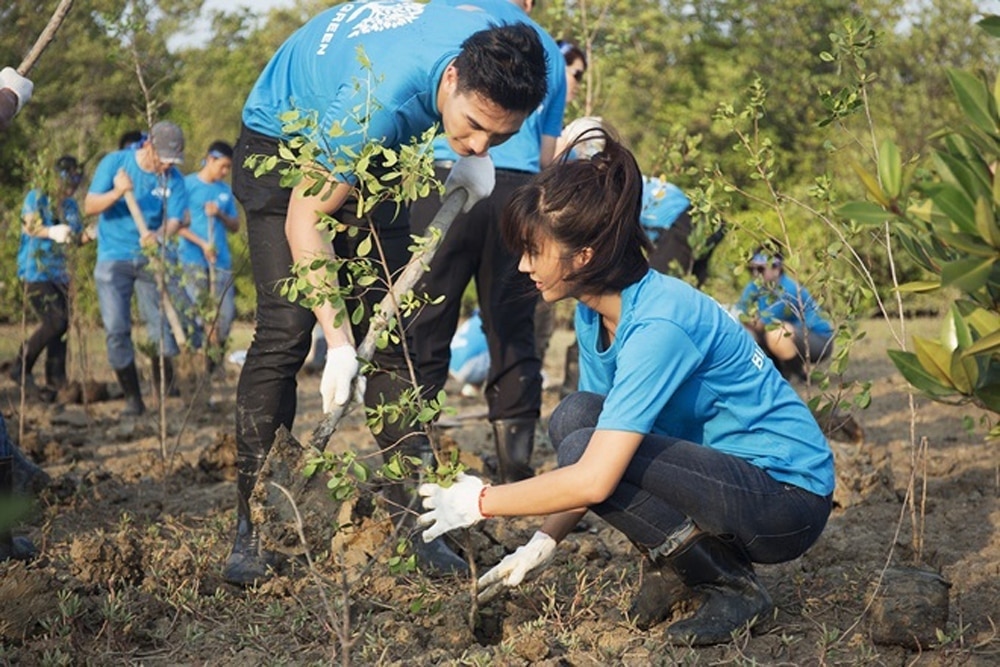 Vietnamese Youth Union members participate in environmental protection and climate change response. (Photo: Front Magazine)[/caption]
Vietnamese Youth Union members participate in environmental protection and climate change response. (Photo: Front Magazine)[/caption]Efforts to promote international cooperation
In addition to focusing resources and taking practical actions through the public policy system, mobilizing the private sector, and prioritizing vulnerable groups, Vietnam actively promotes international cooperation in this field and effectively implements relevant international commitments.
At the 50th Session of the United Nations Human Rights Council held at the United Nations headquarters in Geneva (Switzerland) in July 2022, Vietnam, Bangladesh and the Philippines co-organized a thematic discussion on ensuring the rights of vulnerable groups in the context of climate change, and introduced the draft Resolution 2022 on climate change and human rights, focusing on the right to food and climate change.
This is a Resolution introduced annually by Vietnam, Bangladesh and the Philippines since 2014, for the Human Rights Council to consider and adopt, with each year focusing on specific topics (such as children's rights, health rights, migrant rights, women's rights... in the context of climate change).
Most recently, Vietnam is one of the first 63 countries to join the Global Cooling Commitment announced within the framework of the COP28 Conference in Dubai (UAE) in early December 2023.
The Global Cooling Pledge is an initiative proposed by the UAE COP28 Presidency. Supported by the Cooling Efficiency Enhancement Coalition - UNEP and its partners, the Sustainable Energy for All (SEforALL) and the International Renewable Energy Agency (IRENA). The target calls for a reduction of at least 68% in greenhouse gas emissions from the global cooling sector by 2050 compared to 2022, contributing to the goal of keeping the global average temperature increase to 1.5°C and in line with the goal of achieving net zero emissions by 2050.
Vietnam’s participation in the Global Cooling Commitment is an opportunity to implement cooperation programs and projects with international organizations and domestic and foreign enterprises on sustainable cooling. Specifically, such as switching to high energy efficiency technology, using refrigerants with low global warming potential, applying passive cooling solutions, natural cooling, etc. in line with the general trend of the world.
This also contributes to the implementation of international treaties and Vietnamese laws on greenhouse gas emission reduction and ozone layer protection. The content of the Global Cooling Commitment is consistent with the orientation in the Vietnam Sustainable Development Strategy, the National Strategy on Climate Change up to 2050 and the Nationally Determined Contribution (NDC) updated in 2022.
Flower Dance






![[Photo] Prime Minister Pham Minh Chinh chairs conference on anti-smuggling, trade fraud, and counterfeit goods](https://vphoto.vietnam.vn/thumb/1200x675/vietnam/resource/IMAGE/2025/5/14/6cd67667e99e4248b7d4f587fd21e37c)







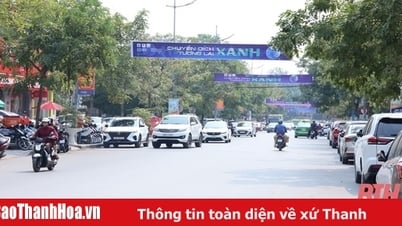






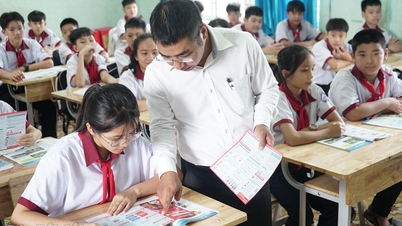









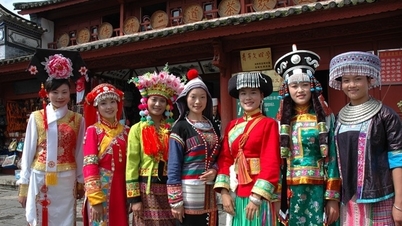

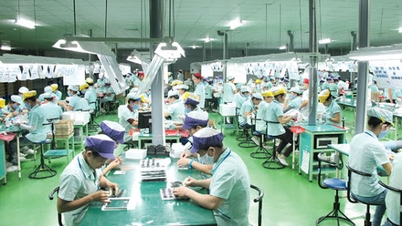
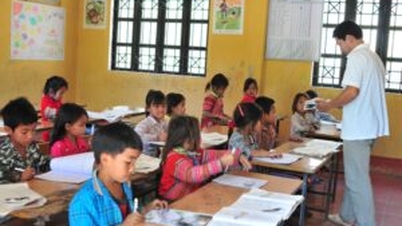

























































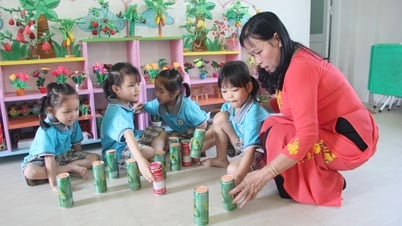









Comment (0)